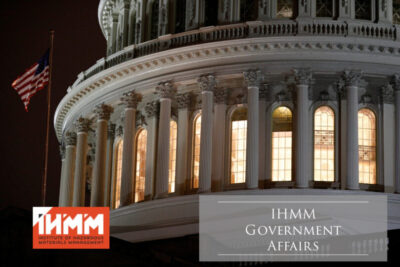House Republicans’ plans to advance a comprehensive budget resolution this week have hit a snag, delaying a key step in their push to enact President Trump’s policy agenda.
The House Budget Committee was expected to mark up the resolution to set the stage for budget reconciliation, but GOP leadership has confirmed that the process will not move forward as planned.
Speaker Mike Johnson (R-LA) and House Majority Leader Steve Scalise (R-LA) had laid out an ambitious legislative schedule, aiming for the House to approve the budget resolution by mid-February. That timeline is now uncertain as internal divisions within the Republican caucus persist.
At the heart of the delay is an ongoing debate over spending cuts.
- In January, House Budget Committee Republicans circulated a 51-page document outlining potential policy changes and cost estimates for a reconciliation package spanning 11 committees.
- The proposal was intended to identify revenue sources to offset significant tax cuts and other legislative priorities.
However, disagreements over the scale of spending reductions have stalled progress.
- Initially, House GOP leaders proposed $500 billion in spending cuts, a figure that met immediate resistance from fiscal hardliners.
- In an attempt to bridge the gap, leaders raised the proposed cuts to $700 billion, but that still fell short of demands from members of the House Freedom Caucus and other deficit hawks.
- Some conservatives are calling for at least $2 trillion in spending reductions, a level that leadership has so far resisted.
What’s next: The reconciliation package is expected to address a broad range of policy areas, including tax cuts, federal spending, immigration, and energy. A major point of contention is the extension of the 2017 tax cuts, which, according to the Congressional Budget Office, would add $4.6 trillion to the national deficit over the next decade.
House leaders are expected to continue negotiations in Washington this week.
_________
March 14th Deadline for the Federal Govt Shutdown
With a March 14 government funding deadline fast approaching, House Minority Leader Hakeem Jeffries (D-NY) is urging his caucus to reject Trump administration plans to freeze federal funding as part of any bipartisan agreement to keep the government open.
Last week, the White House budget office ordered a pause on a wide range of grants and loans disbursed by the federal government, triggering mass confusion as federal agencies, contractors, nonprofit groups and other recipients of federal funding struggled to figure out which funds were or were not frozen. The budget office later rescinded the funding freeze, but not before it was blocked by court order after a legal challenge from a coalition led by the National Council of Nonprofits.
In a letter to House Democrats on Monday, Jeffries insisted that the freeze “must be choked off” in any forthcoming deal, adding, “if not sooner.” His remarks signal growing Democratic resistance to the tight spending limits favored by some conservatives as lawmakers work to avert a potential shutdown.
The federal spending freeze pushed by the Trump administration has been embraced by House Republican hardliners who argue that it is necessary to rein in government expenditures. However, Jeffries and other Democratic leaders contend that such constraints threaten essential services and would hinder long-term economic stability.
Jeffries may have substantial leverage in upcoming negotiations on government funding. In the last Congress, Speaker Mike Johnson (R-LA) repeatedly turned to House Democrats for votes to approve must-pass spending because a conservative faction of his caucus will not vote for stopgap funding bills.


